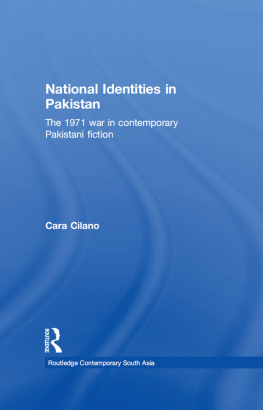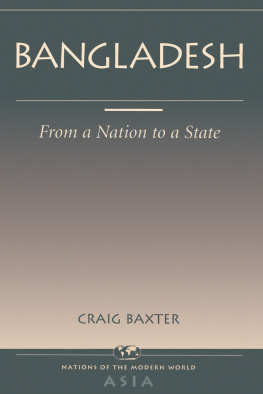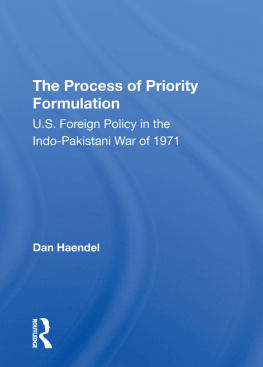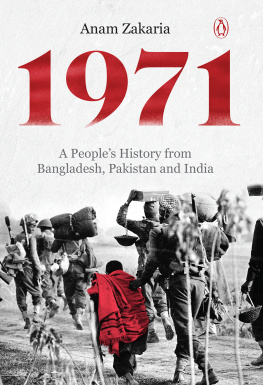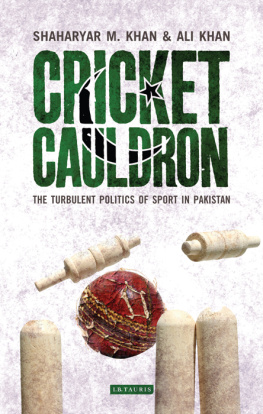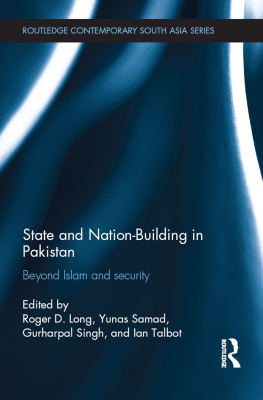National Identities in Pakistan
In 1971, a war which took place in Pakistan resulted in the establishment of two separate countries: East Pakistan became Bangladesh, leaving the remaining four western provinces to comprise a truncated Pakistan. This book examines how literature by those who remained Pakistanis acts as a cultural response to the threat the war posed to a nationalist identity. It provides an analysis of the writing by Pakistani authors in their attempt to deal with the radical shock of the war and shows how fiction about the war helps readers imagine what the paring down of the country means for any abiding articulation of a Pakistani group identification.
The author discusses English- and Urdu-language fictions in the context of the historical debate about Pakistani nationalism, including how such nationalism informs literary culture, and the contemporary interest in official apologies for the past. The author organises the literary analysis around four key issues: the domestic sphere and the family; the territorial limits of citizenship; multiculturalism, class, and nationalist history; and diasporic imaginings of the nation. These issues resonate across the fictions in both languages and the authors analysis of them traces how these works grapple with changing notions of what it means to be Pakistani after the civil war and offers an interesting discussion to studies in South Asia.
Cara Cilano is Associate Professor in the Department of English at the University of North Carolina-Wilmington, USA. She has edited a collection of essays, From Solidarity to Schisms: 9/11 and After in Fiction and Film from Outside the US (2009).
Routledge contemporary South Asia series
Pakistan
Social and cultural transformations in a Muslim nation
Mohammad A. Qadeer
Labor, Democratization and Development in India and Pakistan
Christopher Candland
China-India Relations
Contemporary dynamics
Amardeep Athwal
Madrasas in South Asia
Teaching terror?
Jamal Malik
Labor, Globalization and the State
Workers, women and migrants confront neoliberalism
Edited by Debdas Banerjee and Michael Goldfield
Indian Literature and Popular Cinema
Recasting classics
Edited by Heidi R. M. Pauwels
Islamist Militancy in Bangladesh
A complex web
Ali Riaz
Regionalism in South Asia
Negotiating cooperation, institutional structures
Kishore C. Dash
Federalism, Nationalism and Development
India and the Punjab economy
Pritam Singh
Human Development and Social Power
Perspectives from South Asia
Ananya Mukherjee Reed
The South Asian Diaspora
Transnational networks and changing identities
Edited by Rajesh Rai and Peter Reeves
Pakistan-Japan Relations
Continuity and change in economic relations and security interests
Ahmad Rashid Malik
Himalayan Frontiers of India
Historical, geo-political and strategic perspectives
K. Warikoo
Indias Open-Economy Policy
Globalism, rivalry, continuity
Jalal Alamgir
The Separatist Conflict in Sri Lanka
Terrorism, ethnicity, political economy
Asoka Bandarage
Indias Energy Security
Edited by Ligia Noronha and Anant Sudarshan
Globalization and the Middle Classes in India
The social and cultural impact of neoliberal reforms
Ruchira Ganguly-Scrase and Timothy J. Scrase
Water Policy Processes in India
Discourses of power and resistance
Vandana Asthana
Minority Governments in India
The puzzle of elusive majorities
Csaba Nikolenyi
The Maoist Insurgency in Nepal
Revolution in the twenty-first century
Edited by Mahendra Lawoti and Anup K. Pahari
Global Capital and Peripheral Labour
The history and political economy of plantation workers in India
K. Ravi Raman
Maoism in India
Reincarnation of ultra-left wing extremism in the 21st century
Bidyut Chakrabarty and Rajat Kujur
Economic and Human Development in Contemporary India
Cronyism and fragility
Debdas Banerjee
Culture and the Environment in the Himalaya
Arjun Guneratne
The Rise of Ethnic Politics in Nepal
Democracy in the margins
Susan I. Hangen
The Multiplex in India
A cultural economy of urban leisure
Adrian Athique and Douglas Hill
Tsunami Recovery in Sri Lanka
Ethnic and regional dimensions
Dennis B. McGilvray and Michele R Gamburd
Development, Democracy and the State
Critiquing the Kerala model of development
K Ravi Raman
Mohajir Militancy in Pakistan
Violence and transformation in the Karachi conflict
Nichola Khan
Nationbuilding, Gender and War Crimes in South Asia
Bina DCosta
The State in India after Liberalization
Interdisciplinary perspectives
Edited by Akhil Gupta and K. Sivaramakrishnan
National Identities in Pakistan
The 1971 war in contemporary Pakistani fiction
Cara Cilano
First published 2011
by Routledge
2 Park Square, Milton Park, Abingdon, Oxon OX14 4RN
Simultaneously published in the USA and Canada
by Routledge
270 Madison Ave, New York, NY 10016
Routledge is an imprint of the Taylor & Francis Group, an informa business
2011 Cara Cilano
Typeset in Times New Roman by Taylor & Francis Books
All rights reserved. No part of this book may be reprinted or reproduced or utilized in any form or by any electronic, mechanical, or other means, now known or hereafter invented, including photocopying and recording, or in any information storage or retrieval system, without permission in writing from the publishers.
British Library Cataloguing in Publication Data
A catalogue record for this book is available from the British Library
Library of Congress Cataloging in Publication Data
Cilano, Cara
National identities in Pakistan : the 1971 war in contemporary Pakistani
fiction / Cara Cilano.
p. cm. (Routledge contemporary South Asia series; 32)
Includes bibliographical references and index.
1. Pakistani literature-20th century-History and criticism. 2. India-Pakistan
Conflict, 1971-Literature and the war. 3. Nationalism in literature. I. Title.
PK5416.C55 2011
820.995491-dc22 2010003866
ISBN 978-0-415-77958-6 (hbk)
ISBN 978-0-203-86538-5 (ebk)

